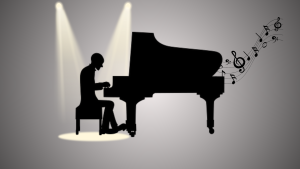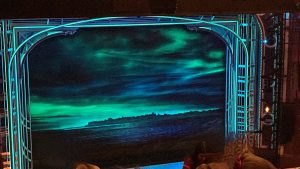Content warning: This article contains descriptions of race-based violence that may be triggering to some people.
“There was another one.”
“What’s their name?”
“Daunte Wright, same place as George Floyd.”
“Same town? Minneapolis?”
“Yeah, they stopped him for nothing too.”
The list gets longer and longer. It gets harder to remember their names, to give them the honor that they deserve. Honor that was taken away from them in the milliseconds it takes a cold bullet to break warm flesh.
Last summer, I wrote about unity. I wrote about optimism and justice and hope. This weekend I had no words left – on hope or otherwise.
Kim Potter, a white police officer, grabbed her handgun instead of her Taser and killed 20-year-old Daunte Wright at a traffic stop. She has been since charged with second-degree manslaughter.
Why did this happen? I refuse to believe that “accidental discharge” means anything other than “a consistent and powerful system of societal privilege and racial bias foundational to American policing that leaves mothers crying over bleeding, Black, innocent bodies at the same time murderers get to ask police for Burger King while safely sitting in a questioning room.”
I cannot believe it is an accident when a round is fired with textbook form into a victim’s chest. It cannot be an accident that every time we hear a story like this, we are met with an excuse rather than accountability, apathy rather than mourning. We are met with empty platitudes instead of action because that’s how the system is designed to respond.
Don’t ask why this happened. You already know the answer to that and, in any case it’s the wrong question. It’s not about who, it’s about what. What killed Daunte Wright?
“You seen the video?”
“Yeah…couldn’t have been no accident.”
“Right, and the cop knew it too. You saw his face?”
“Bruh.”
When I immigrated to this country it took me over a decade to gain citizenship. It was a long, arduous process that many did not make it through. As I left the ceremony that day, for the first time I had to consider myself African-American rather than just African or Ghanaian. When an officer looks at me, he won’t see my heritage. Welcome to America, where “young-Black-male” is your new name and police get paid time off for killing someone with your skin color.
It didn’t sink in until years later when I got pulled over for the first time. It was dark. There were two of them. My friend (also Black, also an African immigrant) and I were driving back from the gym and whoop whoop. License and registration please.
“Is this your car?”
“Where are you boys headed?”
“Were you playing basketball or something?”
When we played back the audio recording, I understood something so clearly. When your name is “young Black male,” every encounter with the police can turn a lively car into a crypt. Only we weren’t dead, just our American dream was. The silence between us was suffocating the rest of the way home.
I didn’t ask for more reminders of that night, but they kept coming. In gym clothes or a full suit. On the road or at Rollins. Since then, I’ve held this truth to be self-evident. To be Black in America is to be a citizen without safety. Just sitting with my hands on the dash, wishing for my promised inalienable rights.
_____
“I just expected more from BSU. You guys really missed an opportunity.”
“Thank you, ma’am. I will let our exec team know.”
“Yes please! Next time you need to do more.”
Hi, I’m Papaa Kodzi and I’m your token black guy on campus. If that would all fit into one of those name tag stickers, I would be tempted to write it in. It has been exhausting. And yet, I will fight with every ounce of my being to drill this point home into our collective skulls: Black students are not responsible for fixing racism on campus.
It is the responsibility of our institution to create an environment where Black students don’t drop out or transfer after a semester because they found inadequate support at their predominantly white institution. Imagine if we treated other “community standards” at Rollins the way we treat racism and hate crimes. Imagine if we didn’t have an honor code, but just got an email whenever someone was caught cheating.
This is the true test of an organization’s priorities: not just which ideals they give verbal support to, but which ideals they enforce.
It involves more than reaching out to a small group of students who are Black, Indigenous, and people of color. It takes addressing the roots of ignorance and apathy that are apparent on our campus. It takes the boldness to set an example and be a leader for other predominantly white institutions by enacting and enforcing concrete racial equity measures.
The beauty of life-changing moments is that they come so rarely. So few moments in our lives can we proudly point to and identify as an opportunity that we seized that changed our trajectory.
But when it comes to anti-racism, opportunities to make a stand happen every single day. We’ve seen action on some, but we have missed multitudes. Daunte could have been one of us. He was 20. Don’t give me excuses. Missed opportunities are not accidents. Every student has the right to thrive at their school. If you don’t think that Rollins could be doing better for its Black students, you’re wrong.
The opinions on this page do not necessarily reflect those of The Sandspur or Rollins College.












Comments are closed.